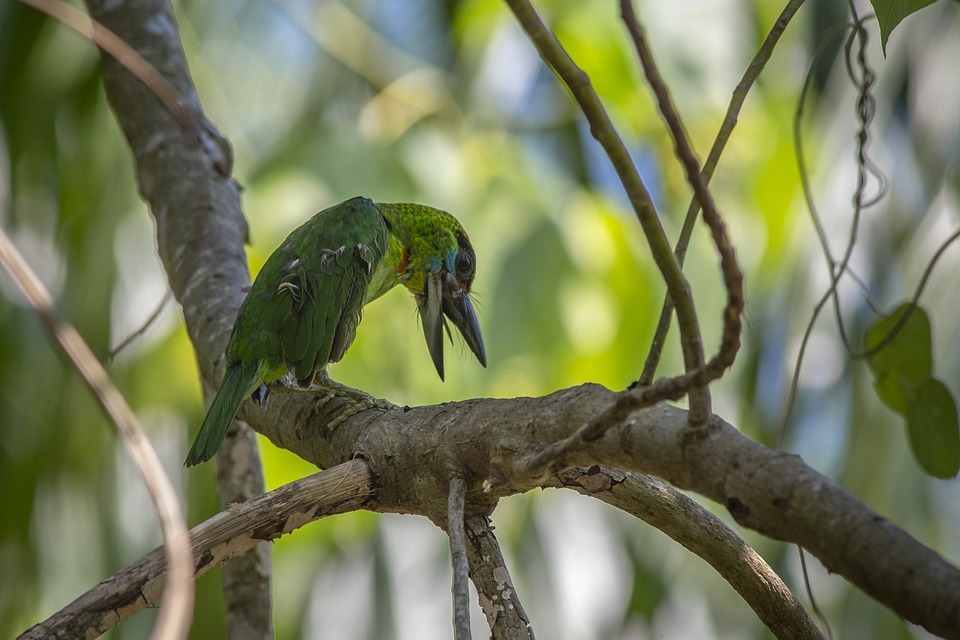Parrots are known for their beautiful plumage, which they often maintain through regular feather preening. However, excessive feather preening can lead to feather destruction and other behavioral issues. In this article, we will explore the reasons behind excessive feather preening in parrots and provide practical tips to discourage this behavior. Additionally, we will address frequently asked questions regarding parrot behavior and feather preening.
Understanding Excessive Feather Preening
Feather preening is a natural behavior in parrots and serves various purposes, such as maintaining feather condition, removing dirt, and promoting blood circulation. However, when this behavior becomes excessive, it can lead to feather plucking, self-mutilation, and other problems. Excessive feather preening is often an indication of underlying issues, including:
1. Boredom and Lack of Mental Stimulation: Parrots are highly intelligent animals and require mental enrichment to prevent boredom. In the absence of suitable activities, they may resort to excessive preening as a way to occupy themselves.
2. Stress and Anxiety: Parrots are sensitive creatures that can easily become stressed or anxious. Changes in their environment, lack of social interaction, or other factors can contribute to excessive preening as a coping mechanism.
3. Health Problems: Certain medical conditions, such as skin infections, allergies, or nutritional deficiencies, can cause itching or discomfort, leading to excessive feather preening.
Tips to Discourage Excessive Feather Preening
1. Provide Ample Mental Stimulation: Parrots need constant mental stimulation to keep them engaged and prevent boredom. Offer a variety of toys, puzzles, and foraging activities to keep their minds occupied and minimize the chances of excessive preening.
2. Establish a Routine: Parrots thrive on routine and predictability. Create a daily schedule that includes playtime, training sessions, and social interaction. This will provide a sense of security and reduce the need for excessive preening.
3. Ensure a Healthy Diet: A balanced and nutritious diet is crucial for a parrot’s overall well-being. Consult an avian veterinarian to determine the best diet for your parrot’s specific needs. A healthy diet can improve feather quality and reduce the urge to excessively preen.
4. Promote Social Interaction: Parrots are social animals that require regular interaction with their human companions or other birds. Spend quality time with your parrot, engage in interactive play, and consider providing a companion if appropriate.
5. Identify and Address Stressors: Identify any factors in your parrot’s environment that may be causing stress or anxiety. It could be loud noises, changes in routine, or lack of mental stimulation. Take steps to eliminate or minimize these stressors, creating a calm and harmonious environment for your feathered friend.
FAQs about Parrot Behavior and Feather Preening
Q: Is feather preening the same as feather plucking?
A: No, feather preening is a normal behavior where parrots groom and maintain their feathers. Feather plucking, on the other hand, is when a parrot excessively pulls out its feathers, leading to bald patches and potential skin damage.
Q: Can diet affect excessive feather preening in parrots?
A: Yes, an improper diet can contribute to feather problems in parrots. Ensure your parrot receives a balanced diet that includes fresh fruits, vegetables, high-quality pellets, and occasional treats. Consult with an avian veterinarian for specific dietary recommendations.
Q: Should I punish my parrot for excessive feather preening?
A: Punishment is not an effective approach to address excessive feather preening. Instead, focus on identifying the underlying causes and providing a supportive environment for your parrot. Positive reinforcement, mental stimulation, and addressing any health concerns are more productive ways to discourage this behavior.
Q: Can I use anti-feather plucking sprays or collars to stop excessive preening?
A: While some sprays or collars may temporarily deter feather plucking, they do not address the underlying causes of the behavior. It is essential to identify and address the root cause of excessive preening to effectively discourage and manage the behavior.
Remember, each parrot is unique, and it may take time and patience to find the right strategies to discourage excessive feather preening in your feathered companion. If the behavior persists or worsens, consult with an avian veterinarian or an animal behaviorist for further guidance.









